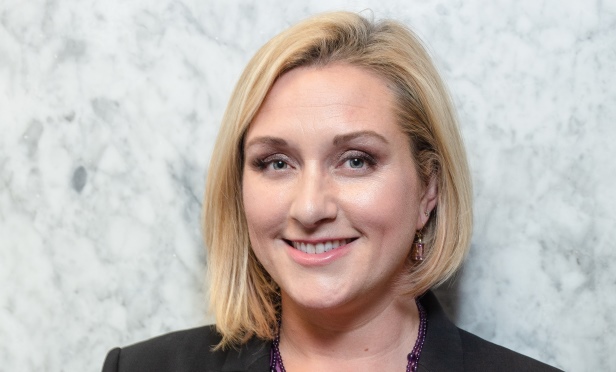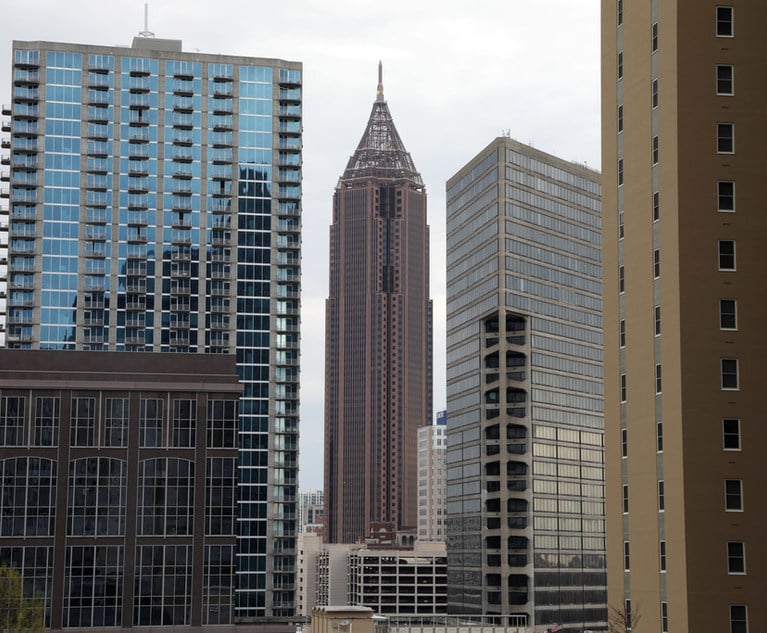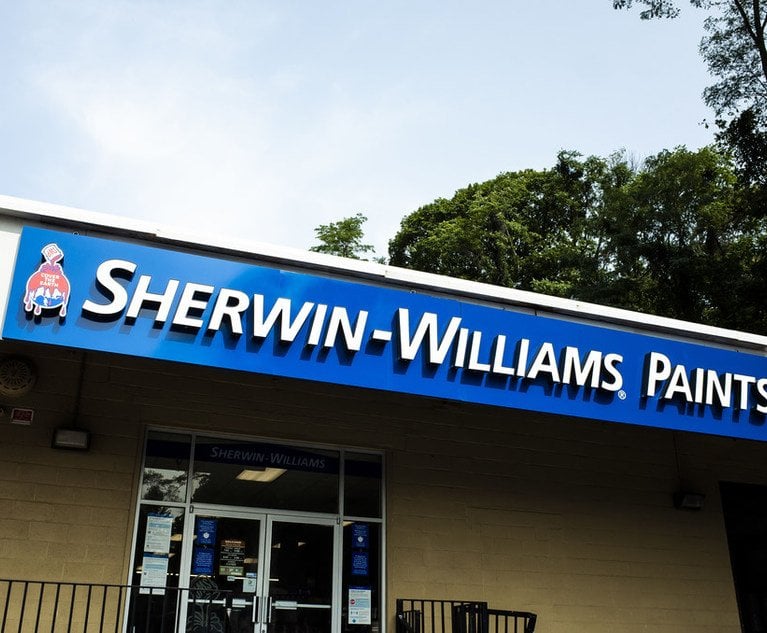Take the Due Diligence High Road for Cannabis-Related Leases
Katy Young, managing partner of Ad Astra and the current president of the National Cannabis Bar Association, recently shared insights into leasing retail space for cannabis use.
July 08, 2019 at 04:00 AM
4 minute read
The original version of this story was published on Law.com
 Young says to negotiate exit ramps in the lease in case a business does not obtain a cannabis license.
Young says to negotiate exit ramps in the lease in case a business does not obtain a cannabis license.
SAN FRANCISCO—A recent report by Cushman & Wakefield shows that low vacancy combined with continued high levels of demand in Sacramento have led to rapid growth in asking lease rates, closing the first quarter at $0.68 per square foot per month on a triple net basis. The report does call out that the lofty figure is likely inflated by landlords seeking out cannabis-related industries demanding higher rents, but is also due in part to sustained levels of low vacancy.
Indeed, with medicinal marijuana giving rise to legal sales, cannabis is a hot button these days. And, the real estate landscape is no exception. Katy Young, managing partner of San Francisco-based law firm Ad Astra and the current president of the National Cannabis Bar Association, recently shared insights into the ins and outs of leasing retail space for cannabis use, how long before it's widely accepted by the general public, and cautionary tales about cannabis use leasing.
GlobeSt.com: What advice would you give to a cannabis company looking to lease retail space?
Young: Be sure that your landlord understands that your business functions in the cannabis space, and depending on your state's laws, the landlord may have to participate in the licensing process insofar as being disclosed on the application. You should be careful to negotiate exit ramps in the lease, just in case your business does not obtain a license to operate a cannabis business. You'll want to be able to terminate the lease if you can't operate. Be sure to negotiate about the law of fixtures as well, especially for indoor grows, because the equipment that you affix to the property to run your business could become the landlord's property.
GlobeSt.com: What advice would you give to a landlord who has been sought out by a cannabis company?
Young: Do your due diligence on the tenant: Are they licensed? Compliant? What is the corporate structure? Who will be your guarantor? Include a clause in the lease that allows you audit rights to check to ensure that your tenant is licensed and compliant. If the tenant loses its license, you want to be able to terminate the lease immediately to avoid civil asset forfeiture. Include clauses that allow exit ramps if the tenant does not get a license to operate or loses its license.
GlobeSt.com: Do you think we'll see a day where CBD and cannabis products are widely accepted by both shopping center landlords and the general public?
Young: Oh yes. CBD is very popular among seniors and is already widely available despite still largely remaining illegal federally and in many states. CBD is the non-psychoactive form of the cannabinoids in cannabis, so it won't get you high but it does appear to have the therapeutic properties that many medical patients seek. The stigma is worse than anything. As our society grows used to cannabis in the mainstream, shopping centers and the public generally will embrace cannabis use the way we tolerate cigarettes and alcohol.
GlobeSt.com: Is there a case study where a cannabis or CBD retailer was either turned away or had a license revoked as an example of the confusion and resistance remaining in this market?
Young: There are distance requirements that prevent cannabis businesses from being too close to a school, daycare facility, etc. In Oakland, one of my client's had one of the coveted equity permits and was operating in a permitted space, but then a school moved in next door to them, and they lost their license to operate.
This content has been archived. It is available through our partners, LexisNexis® and Bloomberg Law.
To view this content, please continue to their sites.
Not a Lexis Subscriber?
Subscribe Now
Not a Bloomberg Law Subscriber?
Subscribe Now
NOT FOR REPRINT
© 2025 ALM Global, LLC, All Rights Reserved. Request academic re-use from www.copyright.com. All other uses, submit a request to [email protected]. For more information visit Asset & Logo Licensing.
You Might Like
View All
After Solving Problems for Presidents, Ron Klain Now Applying Legal Prowess to Helping Airbnb Overturn NYC Ban
7 minute read
DOJ, 10 State AGs File Amended Antitrust Complaint Against RealPage and Big Landlords
4 minute read
Eversheds Sutherland Moving After 36 Years to Smaller Atlanta Office
4 minute read
Insurers Dodge Sherwin-Williams' Claim for $102M Lead Paint Abatement Payment, State High Court Rules
Trending Stories
Who Got The Work
J. Brugh Lower of Gibbons has entered an appearance for industrial equipment supplier Devco Corporation in a pending trademark infringement lawsuit. The suit, accusing the defendant of selling knock-off Graco products, was filed Dec. 18 in New Jersey District Court by Rivkin Radler on behalf of Graco Inc. and Graco Minnesota. The case, assigned to U.S. District Judge Zahid N. Quraishi, is 3:24-cv-11294, Graco Inc. et al v. Devco Corporation.
Who Got The Work
Rebecca Maller-Stein and Kent A. Yalowitz of Arnold & Porter Kaye Scholer have entered their appearances for Hanaco Venture Capital and its executives, Lior Prosor and David Frankel, in a pending securities lawsuit. The action, filed on Dec. 24 in New York Southern District Court by Zell, Aron & Co. on behalf of Goldeneye Advisors, accuses the defendants of negligently and fraudulently managing the plaintiff's $1 million investment. The case, assigned to U.S. District Judge Vernon S. Broderick, is 1:24-cv-09918, Goldeneye Advisors, LLC v. Hanaco Venture Capital, Ltd. et al.
Who Got The Work
Attorneys from A&O Shearman has stepped in as defense counsel for Toronto-Dominion Bank and other defendants in a pending securities class action. The suit, filed Dec. 11 in New York Southern District Court by Bleichmar Fonti & Auld, accuses the defendants of concealing the bank's 'pervasive' deficiencies in regards to its compliance with the Bank Secrecy Act and the quality of its anti-money laundering controls. The case, assigned to U.S. District Judge Arun Subramanian, is 1:24-cv-09445, Gonzalez v. The Toronto-Dominion Bank et al.
Who Got The Work
Crown Castle International, a Pennsylvania company providing shared communications infrastructure, has turned to Luke D. Wolf of Gordon Rees Scully Mansukhani to fend off a pending breach-of-contract lawsuit. The court action, filed Nov. 25 in Michigan Eastern District Court by Hooper Hathaway PC on behalf of The Town Residences LLC, accuses Crown Castle of failing to transfer approximately $30,000 in utility payments from T-Mobile in breach of a roof-top lease and assignment agreement. The case, assigned to U.S. District Judge Susan K. Declercq, is 2:24-cv-13131, The Town Residences LLC v. T-Mobile US, Inc. et al.
Who Got The Work
Wilfred P. Coronato and Daniel M. Schwartz of McCarter & English have stepped in as defense counsel to Electrolux Home Products Inc. in a pending product liability lawsuit. The court action, filed Nov. 26 in New York Eastern District Court by Poulos Lopiccolo PC and Nagel Rice LLP on behalf of David Stern, alleges that the defendant's refrigerators’ drawers and shelving repeatedly break and fall apart within months after purchase. The case, assigned to U.S. District Judge Joan M. Azrack, is 2:24-cv-08204, Stern v. Electrolux Home Products, Inc.
Featured Firms
Law Offices of Gary Martin Hays & Associates, P.C.
(470) 294-1674
Law Offices of Mark E. Salomone
(857) 444-6468
Smith & Hassler
(713) 739-1250








